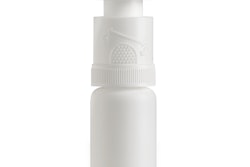
Imagine two situations: In the first, you pick up a baseball bat, walk down the street, swing it, and accidentally hit someone. The person you hit could sue you for negligence and get money from you, but it’s not a crime. In the second situation, you pick up a baseball bat and swing it purposefully to hurt that guy who lives next door whose dog won’t stop barking. That is a crime called battery, maybe also assault, maybe also others, and you could end up in jail.
Same swing, different legal result. Why? Because of your “state of mind.” Traditionally, an action is not a crime unless it’s taken with the appropriate intention, the so-called “intent element” of the crime. That’s a comfort to those of us who plan to stay out of jail, right? You can content yourself that as long as you aren’t trying to hurt or cheat anyone, you won’t go to jail.
Well, sit down, I need to tell you something: Violations of the FDA’s requirements can put you in jail for a misdemeanor even if you didn’t intend to commit them, and even if you didn’t know about them. All that is required is that your company put a violative product into interstate commerce and that you had a share of the company’s responsibility for that happening, by virtue of your position or obligations at the company.
But wait a minute, you may be saying. This isn’t so unusual. After all, there’s no “intent element” to a speeding ticket or a parking ticket. Or, for that matter, to violations of zoning or environmental regulations, or lots of other legal requirements, some of which do result in criminal fines and imprisonment.
True. But it is nevertheless surprising to many in drug, device, or food businesses, where voluntary compliance is the goal and the norm, and the consequences of violations are rarely even suggested to be criminal. Packagers in these businesses should always keep in mind this bracing reality of the law, that the federal Food, Drug and Cosmetic Act is a “strict liability” criminal statute.
Does FDA do this often? No. Can you also be prosecuted criminally if you did intend to violate the law? Of course, and then it would be a felony with more serious penalties. Also, once you’re convicted of a misdemeanor, any future violations of the Act are felonies.
The idea of prosecuting people and companies for misdemeanors without having to prove intent is referred to as the “Park doctrine,” named after the 1975 U.S. Supreme Court case that established the legality of such prosecutions. Though Park –type prosecutions are rare, they have a “strong deterrent effect on the defendants and other regulated entities,” says an FDA regulatory manual. In other words, they are intended to, and pretty much do, spread terror and tend to dissuade those who are inclined to neglect their compliance responsibilities.
In recent years, an FDA-er has given a speech suggesting the agency should dust off the Park doctrine and use it more often for its undeniable deterrent effect, and even started citing the case in Warning Letters to companies to put them on notice that the company remains legally responsible for its product’s compliance even when the company uses a contract packager or manufacturer.
It’s a recognized problem for prosecutors that juries probably don’t warm up to the idea of putting people in jail for things that went wrong accidentally, and that may be one reason there aren’t more such cases. Still, there are many benefits that flow from reminding every person with corporate responsibility for putting products into commerce, and especially the most senior persons who are FDA’s most common targets, that the legal consequences for compliance failures could be criminal. If nothing else, it might help the QA department get the budget it needs.






















